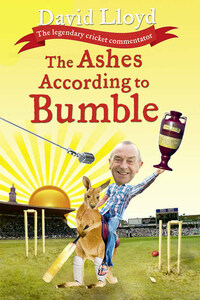One of the first things you notice as an England cricketer on an Ashes tour is the aggression shown towards you by the locals, even when they’re trying to be nice.
‘G’day,’ they say, lips pursing into a smile, before rolling the rest of the sentence off the tongue like a lizard toying with a defenceless ant: ‘Ya pommie bastard.’
Such uncouth language. Surely, everybody with a bit of culture about them knows that on first meetings it is the done thing to be as formal as possible. No shortening of words, and certainly no use of slang. ‘Good morning, how do you do?’ Now that would be a far better address to a visitor to one’s country. It’s what our good queen would approve of, and let’s not forget that for all our historical sporting differences we are united by one thing at least. We have remained kind enough to share her good ladyship with that other rabble.
And anyway, if this pseudo-hostility from our Australian hosts was designed to intimidate they clearly chose the wrong bloke. Regular greetings like that were unlikely to break me psychologically; after all I’d suffered a lot worse during my upbringing in Accrington. Let’s face it, when your mum dresses you in pink frocks, insists on growing your hair long and calling you Gwyneth, as mine did, who cares what you get called outside your front door? Mum had wanted a girl, you see, and for a time she was not prepared to let the fact I wasn’t one get in the way of her dream.
You see, it’s easy to lose your sense of perspective when it comes to the phoney war that develops before every England v Australia series. But while Dennis and Jeff could bruise my bones, names would never hurt me.
As it happened Dennis and Jeff did such a good job of hurting me, and limiting my runs to boot, that my Ashes playing experience was confined to just one series, the 1974–75 whopping down under. So to justify writing an entire book about it, you will notice in subsequent chapters that I have by-passed some of the most enthralling episodes of its great heritage to talk about my own involvement. You will recall me top-scoring in an England win on New Year’s Day that winter; battling valiantly for six hours on the trampoline at Perth. You what? You’ve no recollection of your hero’s bravery in the face of much provocation from those uncouth wombat worriers? Well, let me tell you in the most exaggerated terms possible exactly how I quelled the charge of these savages – softening them up sufficiently for others like Sir Ian Botham to ride in and finish them off in future battles.
I should also probably mention here that some of the names in this recollection of Ashes history have been changed – not, as in some books, to protect true identities but because, after 50 years in the professional game, my recall can be a little hazy. What I can promise, however, is that after half-a-century my enthusiasm has not diminished and I remain as excited as a kid at Christmas when it comes to England v Australia clashes.
There is something so magical about tussling with the old enemy – the great rivalry between Celtic and Rangers, or indeed football internationals between England and Germany, the most comparable things I can think of among other sports – and I have been party to some real ding-dongs in my post-playing career, both as England coach and as a commentator with the BBC’s Test Match Special and Sky Sports.
A series between England and Australia is like no other in cricket and resonates as much now as it did at the turn of the 20th century when news of the exploits of the likes of WG Grace, Ranjitsinhji and Sydney Barnes would be devoured by readers of newspapers like the Manchester Guardian. When you think of years gone by, the ones of 1948, 1956, 1981 and 2005 stand out. Those were years when this country was host to great Ashes series.








